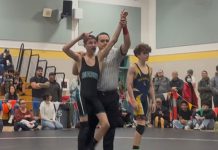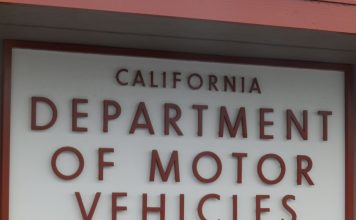Dear Editor,
Today, an estimated 450,000 American students and teachers
exercised their constitutional First Amendment rights and took part
in
”
The Day of Silence.
”
About 100 students and teachers participated at Gilroy High
School.
Dear Editor,
Today, an estimated 450,000 American students and teachers exercised their constitutional First Amendment rights and took part in “The Day of Silence.” About 100 students and teachers participated at Gilroy High School. The Day of Silence peacefully brings attention to bullying and harassment faced by lesbian, gay, bisexual and transgender youth and their allies in America’s schools.
According to the National Youth Advocacy Coalition, “Homosexual youths are more than five times as likely to attempt suicide than their heterosexual peers. The taunts of ‘faggot’ ‘queer’ and ‘that’s so gay’ that reverberate in school hallways, on street corners, playgrounds, and sometimes at the dinner table all combine to drive gay adolescents to the edge.”
In its typical tabloid fashion, the Dispatch’s negative front-page article on this day and the participation of the teachers who chose to take part, especially the advisor of the Gay Straight Alliance, was a sad commentary.
“What is the value of silence?” Perhaps it is better to ask, “Before you speak, ask yourself, is it kind, is it necessary, is it true, does it improve on the silence?”
It has been said that silence is golden, or “Well-timed silence hath more eloquence than speech.” (Martin Fraquhar Tupper) However, while silence can prove a powerful tool as a way to communicate, or to learn, we must also remember that oppression can only take place in an environment where no one speaks up and demands justice.
One of the students quoted in your not-so-well-balanced article asked, “I don’t know what purpose that would serve. I don’t think that being quiet for a day can do much (to teach tolerance.)”
What good did one lone Chinese man do when he stood before the line of tanks on that fateful day before Tiananmen Square? What good did the 24 African-American students have in 1960 when they took seats at the Woolworth’s lunch counter in Greensboro, North Carolina? What good did one lone woman have when she refused to go to the back of the bus, and finally, or this list could become quite long, what good did one thin, South African trained, Hindu lawyer have against the British Empire in India?
The teachers I know who added their “voices” in support of their students, including myself, taught a valuable education. Education is, yes, about mathematics, reading, writing, and science, but it is also about so much more.
The Nazi engineers, scientists, bureaucratic administrators and functionaries, as well as the heads of Germany’s corporate empires, learned well their ABCs. So had many captains of the Middle Passage who trafficked in Africa’s human cargo, and the judges who upheld Jim Crow, but education is also about compassion. It is about justice. It is about respect. It is about sticking up for the minority, the defenseless, and ensuring that all of us, especially here in America, are treated equality and with dignity.
P.S. You should have seen my lesson on the 1920s, a Project 20 documentary and an hour-long discussion. It was dynamite. Next year you can come and see for yourself. I’m sure my administrators would enjoy the company when they pop in just to see if I am earning my pay, which I know I did. I know the Gay-Straight Alliance advisor did, too.
Karen Sue Hockemeyer, Santa Cruz,
GHS teacher











